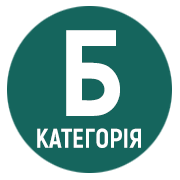FORMATION OF THE POSTMODERN MODEL IN CZECH PROSE OF THE 1960S
DOI:
https://doi.org/10.32782/2412-933X/2025-XXIII-13Keywords:
Czech prose, 1960s, “sixties” generation, alternative literature, postmodern model of writingAbstract
The brief moment of creative freedom in the 1960s, particularly during the Prague Spring, fostered a social and cultural climate that enabled an inspired dialogue between diverse artistic poetics, genres, and styles. The unambiguity of ideology was contrasted with the ambiguity of reality; social machinery and imposed collectivism were opposed by personal experience; and the false objectivity of rational cognition was challenged by irrationality, absurdity, fantasy, and emotion. This article reviews the main trends in the development of Czech prose during the 1960s, outlining its genre and thematic structures. It examines the alternative poetics employed by the “sixties” authors and the innovative methods they used to address social, historical, anti-war, and anti-totalitarian themes. The analysis focuses on the prose of Milan Kundera, Bohumil Hrabal, Josef Škvorecký, Ladislav Fuks, and Vladimír Páral – writers whose works provided a significant impetus for Czech culture in the following decades. The focus is on texts that reflect a departure from realistic depictions of reality, formal experimentation, and genre innovation, all of which paved the way for the formation of the postmodern model in Czech prose. The choice of this topic and its relevance stem from the lack of comprehensive studies on Czech prose of the 1960s in national literary scholarship, as well as the need to understand the genesis and developmental processes of Czech literary postmodernism. The alternative and experimental nature of the poetics employed by Czech writers is assessed as a foundational element in the emergence of the postmodern condition in literature. This condition shaped the pluralistic worldview of authors and significantly influenced the subsequent development of postmodern trends. The analysis concludes that elements of a new type of writing, rooted in the deconstruction of the text, were integrated into Czech literature as early as the mid-1960s. For these experimental writers, the crisis of authority was closely tied to the official culture and was driven by a desire for independent artistic exploration.
References
Клічак Г.В. Екзистенційна парадигма творів Ладіслава Фукса та Арношта Лустіга : дис. … канд. філол. наук : 10.01.03. Київ, 2010. 220 с.
Палій О.П. Романи Мілана Кундери: проблематика, поетика, наративні стратегії : дис. … канд. філол. наук : 10.01.03. Київ, 2005. 212 с.
Палій О.П. Світ у пастці роману (спостереження над поетикою Мілана Кундери) : монографія. Київ : Освіта України, 2006. 282 c.
Федець Ю.І. Проза Богуміла Грабала в контексті «празької іронії» : дис. … канд. філол. наук : 10.01.03. Київ, 2005. 197 с.
Haman A. Proměny strukturních dominant v próze 60. let. Zlatá šedesátá. Česká literatura a společnost v letech tání, kolotání a ... zklamání. Praha : ÚČL AV ČR, 2000. S. 137–144.
Kosková H. Česká próza druhé poloviny šedesátých let. Pražské jaro 1968. Literatura – film – média. Materiály z mezinárodní konference. Praha : Literární akademie, 2009. S. 139–146.
Kladiva J. Literatura Bohumila Hrabala (Struktura a metoda Hrabalových dĕl). Praha : Pražská imaginace, 1994. 95 s.
MachaIa L. Zlatá šedesátá (a zvláště pak osmašedesátý) v zrcadle „normalizační prózy“. Zlatá šedesátá. Česká literatura a společnost v letech tání, kolotání a ... zklamání. Praha : ÚČL AV ČR, 2000. S. 379–384.






